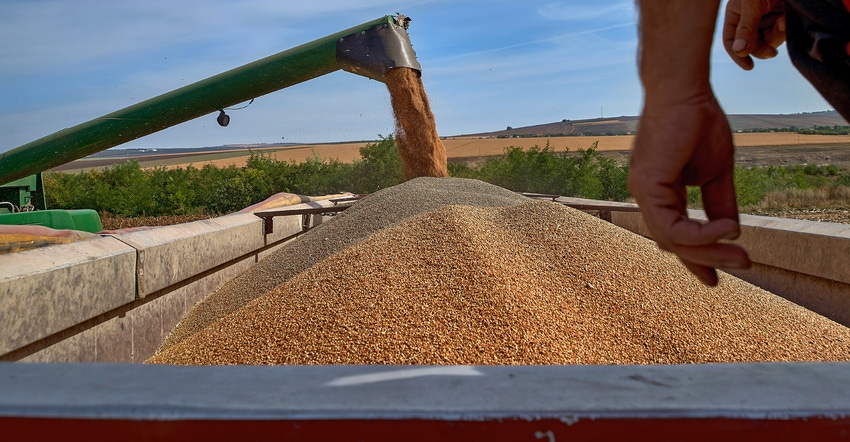February 1, 2021

With everything we endured as a nation in 2020, it’s hard to believe some are saying 2021 could be worse. But here we are. From political unrest to lingering if not intensifying concerns over COVID-19, the bar for the rest of this year was set pretty low in the first few weeks. Fortunately, agriculture is bucking this trend.
For the first time in seven years, U.S. farmers by and large are optimistic about the coming growing season. While many in the Sorghum Belt are grappling with near-historic drought conditions, they’re doing so in a radically different price environment, where prices for all crops have been trending upward for the past few months.
My longtime readers probably want a break from hearing about Chinese demand for sorghum, so I’ll spare those discussions this month and instead dive a little deeper on contracting and the need to be aggressive — both on the farmer side and the end-user side.
My good friend Zach Simon, Kansas regional marketing director for the Sorghum Checkoff, helped me organize these thoughts and visited with a couple of farmers to get their thoughts, as well.
Make crop guarantees
Simon works with players up and down the sorghum supply chain, and availability of the grain is often his biggest obstacle to successfully matching sellers and buyers. To address this challenge, he spends a lot of time extolling the virtues of making commitments early and often, particularly in higher-value applications where a specific type of sorghum may be preferred. In these cases, farmers and brokers are equally responsible for ensuring commitments are made.
“If communicated and contracted in a timely fashion, we’re able to fulfill specific needs related to color and variety prior to planting,” says Jeff Mai, a farmer from Garden City, Kan. “[This also gives us] enough time to make appropriate storage and shipping plans before the rush of harvest hits.”
Simon and Mai work extensively to ensure they have enough lead time to meet the needs of brokers and the end users they represent. For Mai, a six-month heads-up on harvesttime needs is optimal.
“Although there’s some flexibility, hybrids are selected six months in advance, and we’re making a commitment to the crop with the purchase of our inputs like fertilizer and herbicide," he says "We’re also making commitments to field preparations.”
The situation Mai describes isn’t unique, and many farmers would agree this applies to their operation. However, it’s important to remember to communicate these needs to brokers. They’ll be understanding, particularly when they know that such a commitment will guarantee their color, foreign material level, delivery period and other spec needs are met.
Despite the lead time needed, Mai underscored his commitment to building relationships with brokers. “Farmers want to build relationships that benefit both parties over the long term," he says.
Secure price, gain incentives
With Chinese demand for sorghum, the elevated spot prices are making it virtually impossible for higher-value end users to obtain grain if it hasn’t already been contracted. However, with early contracting, this problem will be avoided in the future, and farmers will sleep much easier much earlier.
This is why Simon and Mike Baker, a farmer from McCook, Neb., work so hard to secure fair price offers that give incentives for color separating, segregating, handling and storing instead of selling across the scales.
“We have committed our storage to gluten-free grains,” Baker says. “We always segregate based on color and other attributes given market incentives. We also monitor the grain constantly to maintain marketability and segregation integrity.”
Simon was emphatic about Baker’s commitment to mutually beneficial relationships and a need for all parties to work together. “The contract is important, but the handshake and trust are just as important,” Baker adds.
Duff is executive vice president for National Sorghum Producers. He can be reached by email at [email protected] or on Twitter @sorghumduff.
About the Author(s)
You May Also Like






